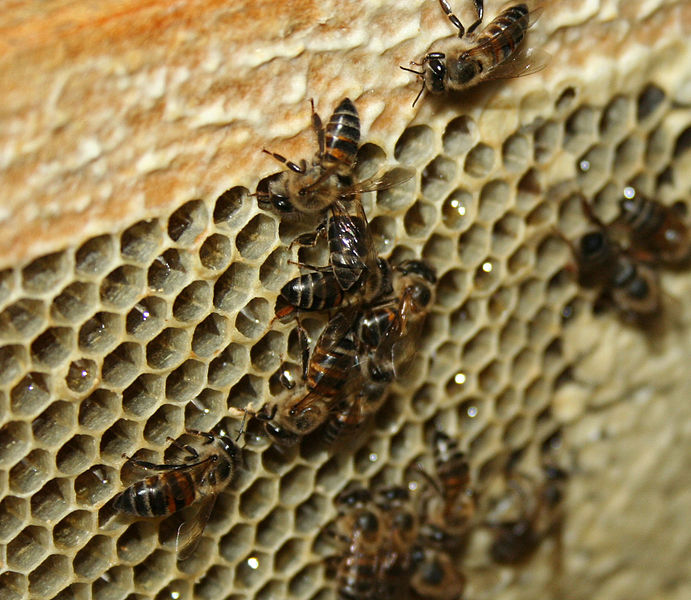There is nothing more satisfying than eating a meal derived from plants you have grown yourself. Perhaps this is why so many people dream of starting their own small farms. These can be idyllic places of self-sufficiency and satisfaction. However, the weather, time and finances can all conspire to turn these dreams into frustration.
U of M graduates Benil Zamora Sable and Erik Schellenberg have been involved with farming throughout their lives and have started a small farm together.
Benil’s dad is a professor of sustainable agriculture in the Philippines. She recalls: “As a kid we would go to farming communities and indigenous groups, live there, help out; [ . . . ] I guess my interest spurred there.” Later on, she got a degree in agriculture and then did a graduate degree in crop breeding and genetics in California.
Erik did a graduate degree is natural resource management where he developed an understanding of how people need to change the way they interact with the environment. “In short, we need to stop extracting value from and commodifying nature,” he explains. Citing time spent with a family of Zapotec Indians in southern Mexico and a community of Inuvialuit in the Canadian Arctic as turning points on his perspective on how we procure our food, Erik says: “Learning about sustainable agriculture and hunting from these cultures has helped influence me to change my lifestyle — with a lot of help and support from Benil.”
Combining their passion, experience and mutual dissatisfaction for the dominant food system, the two decided to take action. They challenged themselves to stop talking and theorizing and put their words and beliefs into action.
Calling their enterprise La Finca Market Garden, they grow a variety of vegetables and herbs, and have chickens for eggs and meat. They produce far more than the two of them can consume — last year they grew enough food for themselves to last the entire summer until October. Therefore they give away a lot of their produce, host dinners and sell part of their harvest at farmers’ markets and to acquaintances.
Benil admits that living off the land is a highly romanticized ideal. Many people don’t realize how much work it takes, but she finds the rewards worthwhile: “[Like] the excitement of walking to the coop and seeing how many eggs we get! Or harvesting our sweet sungolds. It is hard work — we have to slop in the mud, work long hours, it is physically demanding, but to see the fruits of that hard work — happy chickens, an awesome coop, experiments working — is just awesome. We don’t work for the ‘man’; we work with Mother Nature.”
Benil says that time, finances and pricing are among the major farming-related obstacles that they have had to face. Working full time and farming is a big time commitment. Recognizing this, they are looking to take on someone who is interested in a SHRLFE (shared learning farm experience). In terms of finances, they broke even last year but are adjusting their pricing this year. Erik explains: “We know it’s hard to make money, but we don’t want to commodify nature, and we want to see if its possible to get away from the dollar per pound paradigm.
This means that this year they decided to do something different for the veggie boxes that they sell. Benil elaborates: “We never know how to price our produce for friends. So they name their price. They have a minimum commitment of a month. We supply veggies weekly for a month and they tell us how much they think it is worth. That way, it will be agreed upon with reciprocity no one will think it is over priced, and we won’t feel bad charging our friends!”
Although there are obstacles, Benil and Erik are thrilled with their small farm. Benil affirms: “Farming is tough but can also be one of the most rewarding and fun things.” Erik offers this advice: “You have to be ready to not only get your hands dirty, but to get your whole body dirty and covered in manure. More importantly, you have to face chores with a new attitude. They are only mundane if you believe you have something more important to do.”




Hei cousin Erik und friend
wish you all the best and luck with your nice farm!
I’m sure, your products tast good
hug from Jan and family
Erik, I love what you are doing, it is putting my practicum project to action, and I would really like to speak to you about be coming my internal advisor, depending on the knowledge you have gained from this, if the farm is still going, and where it is. I am designing a sustainable rural community that is as self-sufficient as possible, using Ste. Agathe as my site. Please email me as soon as you can.
Hi Benil, it is good to read that you are your father’s daughter – after his passion to advance sustainable agriculture – and mine indeed. Yes, I agree that gardening/farming/working with the land gives much satisfaction.